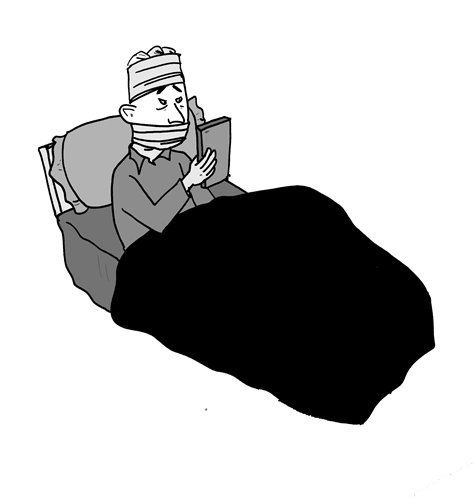
Illustration: Luo Xuan/GT
I had no fear of living abroad, that is until I got extremely sick.
The illness I found myself battling is called "mono" or "kissing disease" in the US because it is contracted through saliva. It was a notorious cause of high school students missing weeks of school, but I found myself in my mid-twenties in the middle of Beijing with mono. Even worse, it was the middle of the summer, which meant all of the US doctors at the international hospitals were on vacation.
I'm a sucker for a web diagnosis, so I suspected that I had mono when I had a sore throat that didn't go away and overwhelming tiredness - two of the main symptoms. Another indicator is that your liver is swollen, which is also true of several other illnesses, including hepatitis. I found this out when the first Chinese doctor I went to gravely told me something was wrong with my liver.
"Are you absolutely sure it isn't mono?" I asked near tears, but she gave no comfort for my fear, and I had no choice but to wait two hours for the results of an ultrasound, only to find out my suspicions were confirmed - I indeed had mono.
I went home that day knowing I was battling an illness alone. Many of my friends were out of town or on vacation, my family was on the other side of the world, and I found it difficult to communicate with the doctors. Unlike the doctors I was more familiar with back home, the Chinese doctor who first helped me at the international hospital tended to solemnly work out what I could have come down with before receiving test results, striking fear in me instead of putting me at ease.
In fact, I wasn't sure what was more terrifying - the illness itself or that language and cultural differences meant I couldn't clearly convey what was going on in my body.
Two weeks later, when one of the more rare symptoms of mono, a full body rash, decided to strike, it was a style of communication that is unique to China that got me through it, WeChat.
Yes, my Chinese doctor, the third and friendliest doctor I had seen over the course of my illness, added me on WeChat so that I could send her updates about my condition. This type of doctor and patient relationship is unheard of in the US, and yet here I was sending this nurturing figure a picture of my rash at all hours of the day so that she could console me and let me know I was still on track for recovery. I could hardly believe my luck.
Instead of doing what I usually do, anxiously looking at pictures online and associating what I see with the fact that I must be getting worse, I was able to get real-time advice and reassurance from a professional who was just a WeChat call or message away.
I'm not sure that the use of WeChat is common in all doctor and patient relationships in China, but I'm still thankful that this particular doctor went out of her way to make me comfortable and find a way to communicate that would put me at ease.


